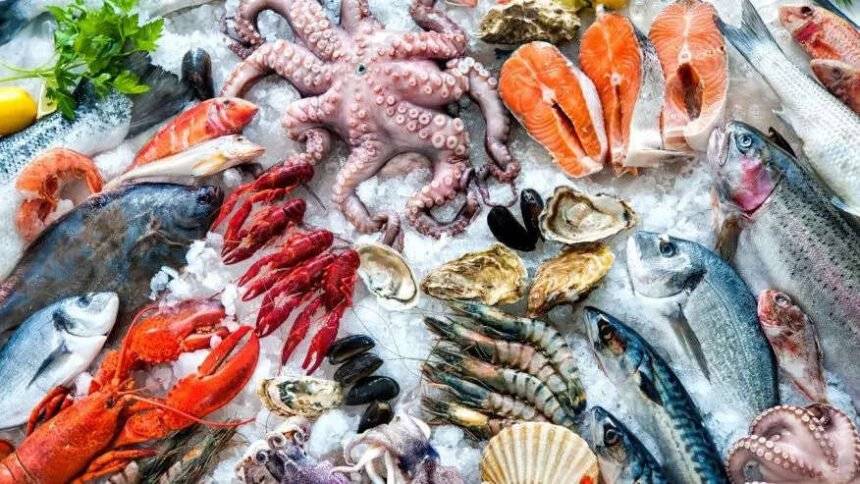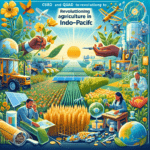Main Points In Hindi (मुख्य बातें – हिंदी में)
यहां पर दिए गए सामग्री का मुख्य बिंदुओं का सारांश प्रस्तुत किया गया है:
-
समुद्री खाद्य उद्योग की गुणवत्ता चुनौती: समुद्री खाद्य उद्योग उच्च गुणवत्ता मानकों को बनाए रखने में कई चुनौतियों का सामना कर रहा है, जैसे फसल कटाई के बाद की आपूर्ति श्रृंखला में मुद्दे और उत्पाद की गुणवत्ता की निगरानी की आवश्यकता।
-
खाद्य गुणवत्ता के प्रवर्तन की आवश्यकता: ग्राहक को भोजन की गुणवत्ता सुनिश्चित करने के लिए सख्त निगरानी प्रणाली और भारतीय खाद्य सुरक्षा और मानक प्राधिकरण (FSSAI) के दिशा-निर्देशों का पालन करने की आवश्यकता है।
-
प्रशीतन प्रक्रिया का महत्व: पूरी आपूर्ति श्रृंखला में सक्षम प्रशीतन प्रणाली की ज़रूरत है, ताकि समुद्री खाद्य को उसके पकड़े जाने से लेकर खुदरा दुकानों तक सही तरीके से संग्रहीत और परिवहन किया जा सके।
-
अनुशासन और लाइसेंसिंग की आवश्यकता: समुद्री खाद्य विक्रेताओं के लिए अनिवार्य परिचालन लाइसेंस की व्यवस्था की जानी चाहिए ताकि जिम्मेदारी सुनिश्चित हो सके और अपंजीकृत बिक्री पर रोक लगा सकें।
- खाद्य सुरक्षा मानकों का कार्यान्वयन: उपभोक्ताओं के स्वास्थ्य और सुरक्षा को सुनिश्चित करने के लिए बुनियादी खाद्य सुरक्षा मानकों का तत्काल कार्यान्वयन आवश्यक है।
Main Points In English(मुख्य बातें – अंग्रेज़ी में)
Here are 4 main points from the provided content:


-
Challenges in Seafood Quality Standards: The seafood industry faces significant challenges in maintaining high-quality standards along the supply chain, from harvesting to reaching consumers. The founder of Captain Fresh emphasized the importance of monitoring seafood quality at every stage.
-
Need for Stringent Regulations: There is an urgent need for strict enforcement of food quality regulations across the seafood supply chain. Currently, anyone can enter the seafood business without appropriate approvals, leading to a decline in quality standards.
-
Importance of Refrigeration and Transport: Adequate transportation systems, temperature control, and proper storage channels are crucial for maintaining seafood quality. A robust refrigeration process is vital from the moment seafood is caught until it reaches retail outlets.
- Mandatory Licensing and Consumer Safety: The seafood industry requires more discipline, including mandatory operational licenses for vendors. To ensure consumer health and safety, implementing basic food safety standards in policy is imperative.
Complete News In Hindi(पूरी खबर – हिंदी में)
समुद्री खाद्य उद्योग की चुनौतियाँ और गुणवत्ता मानकों की आवश्यकता पर चर्चा
समुद्री खाद्य उद्योग आज कई चुनौतियों का सामना कर रहा है, जिसमें गुणवत्ता मानकों को बनाए रखना एक प्रमुख मुद्दा है। हाल ही में गोवा में आयोजित ‘थिंकएजी हार्वेस्टिंग टुमॉरो’ शिखर सम्मेलन में कैप्टन फ्रेश के संस्थापक उत्तम गौड़ा ने इस विषय पर चर्चा की। उन्होंने समुद्री खाद्य की फसल कटाई के बाद की आपूर्ति श्रृंखला में सामने आने वाले महत्वपूर्ण मुद्दों की ओर ध्यान आकर्षित किया।
गौड़ा ने बताया कि खुदरा स्तर पर खाद्य गुणवत्ता की निगरानी और प्रवर्तन में सुधार की आवश्यकता है। वर्तमान में, किसी भी व्यक्ति को उचित मंजूरी प्राप्त किए बिना इस व्यापार में प्रवेश करने की अनुमति है, चाहे वह थोक विक्रेता हो या खुदरा विक्रेता। इसीलिए, मूल्य श्रृंखला में गुणवत्ता में गिरावट देखी जा रही है। उन्होंने भारतीय खाद्य सुरक्षा और मानक प्राधिकरण (FSSAI) के दिशानिर्देशों के सख्त कार्यान्वयन की भी आवश्यकता व्यक्त की, ताकि जिम्मेदारी सुनिश्चित की जा सके।


गौड़ा ने परिवहन व्यवस्था और तापमान नियंत्रण में समस्याओं का भी उल्लेख किया। उन्होंने बताया कि कई खुदरा चैनल सही तरीके से इन उत्पादों को संग्रहित नहीं कर पा रहे हैं, जिससे गुणवत्ता में कमी आती है। उनका कहना है कि पूरी आपूर्ति श्रृंखला में एक मजबूत प्रशीतन प्रक्रिया स्थापित करना आवश्यक है, जो समुद्री भोजन के पकड़े जाने से लेकर उपभोक्ताओं की थाली तक की यात्रा को सुनिश्चित करेगा।
उन्होंने यह भी सुझाव दिया कि समुद्री खाद्य उद्योग को अधिक अनुशासन की आवश्यकता है। उत्पादों को खुली बाजार में लाने के लिए सीफूड विक्रेताओं के लिए अनिवार्य परिचालन लाइसेंस की आवश्यकता को महत्व दिया गया। इसके साथ ही, गुणवत्ता बनाए रखने के लिए अपंजीकृत बिक्री बिंदुओं पर नियंत्रण रखने की आवश्यकता है।
गौड़ा ने उपभोक्ताओं के स्वास्थ्य और सुरक्षा को सुनिश्चित करने के लिए बुनियादी खाद्य सुरक्षा मानकों को लागू करने की तत्काल आवश्यकता को भी प्रमुखता दी। उनका निष्कर्ष स्पष्ट था कि यदि समुद्री खाद्य उद्योग को सफल होना है, तो उसे एक सशक्त और जिम्मेदार दृष्टिकोण अपनाने की जरूरत है।
इस प्रकार, समुद्री खाद्य उद्योग की गुणवत्ता को बनाए रखने के लिए उचित निगरानी प्रणाली, परिवहन और संग्रहण में सुधार, और उपभोक्ताओं की सुरक्षा सुनिश्चित करने की दिशा में कार्य करना आवश्यक है। उद्योग को अपने मानकों में सुधार लाने के लिए एक दृढ़ संकल्प के साथ आगे बढ़ना होगा।
Complete News In English(पूरी खबर – अंग्रेज़ी में)
Summary: Challenges Facing the Seafood Industry’s Quality Standards
The seafood industry is currently grappling with various challenges in maintaining high-quality standards throughout the supply chain. This issue was highlighted by Uttam Gauda, the founder of the technology-enabled B2B seafood marketplace Captain Fresh, during the ThinkAG Harvesting Tomorrow summit held in Goa. Gauda emphasized the importance of monitoring seafood quality through the supply chain, starting from harvesting to the market and ultimately to the consumers’ plates.
He pointed out that the enforcement of food quality standards across the retail level and the entire supply chain needs to be improved. Presently, anyone can enter the seafood trade without proper approvals, whether they are wholesalers or retailers, resulting in a decline in quality within the value chain. Gauda stressed the need for a robust monitoring system and stringent adherence to the guidelines set by the Food Safety and Standards Authority of India (FSSAI) to ensure accountability.
Transportation and temperature control, along with a lack of appropriate storage in retail channels, were cited as significant challenges the industry faces. Gauda advocated for an effective refrigeration process throughout the entire supply chain—from the moment seafood is caught, through its transportation to the jetty, and until it reaches retail outlets. He remarked that the seafood industry requires greater discipline, as products often reach consumers’ kitchens directly from the open market.
To address these issues, he proposed the implementation of compulsory operational licenses for seafood vendors to enforce accountability and to regulate unregistered sales points. Furthermore, Gauda stressed the urgent necessity for basic food safety standards to protect consumer health and safety, calling for immediate action in policy implementation.
In conclusion, the seafood industry must focus on enhancing quality enforcement mechanisms, improving transportation and storage practices, and adhering to robust food safety regulations to ensure the well-being of consumers and the sustainability of the seafood supply chain.




